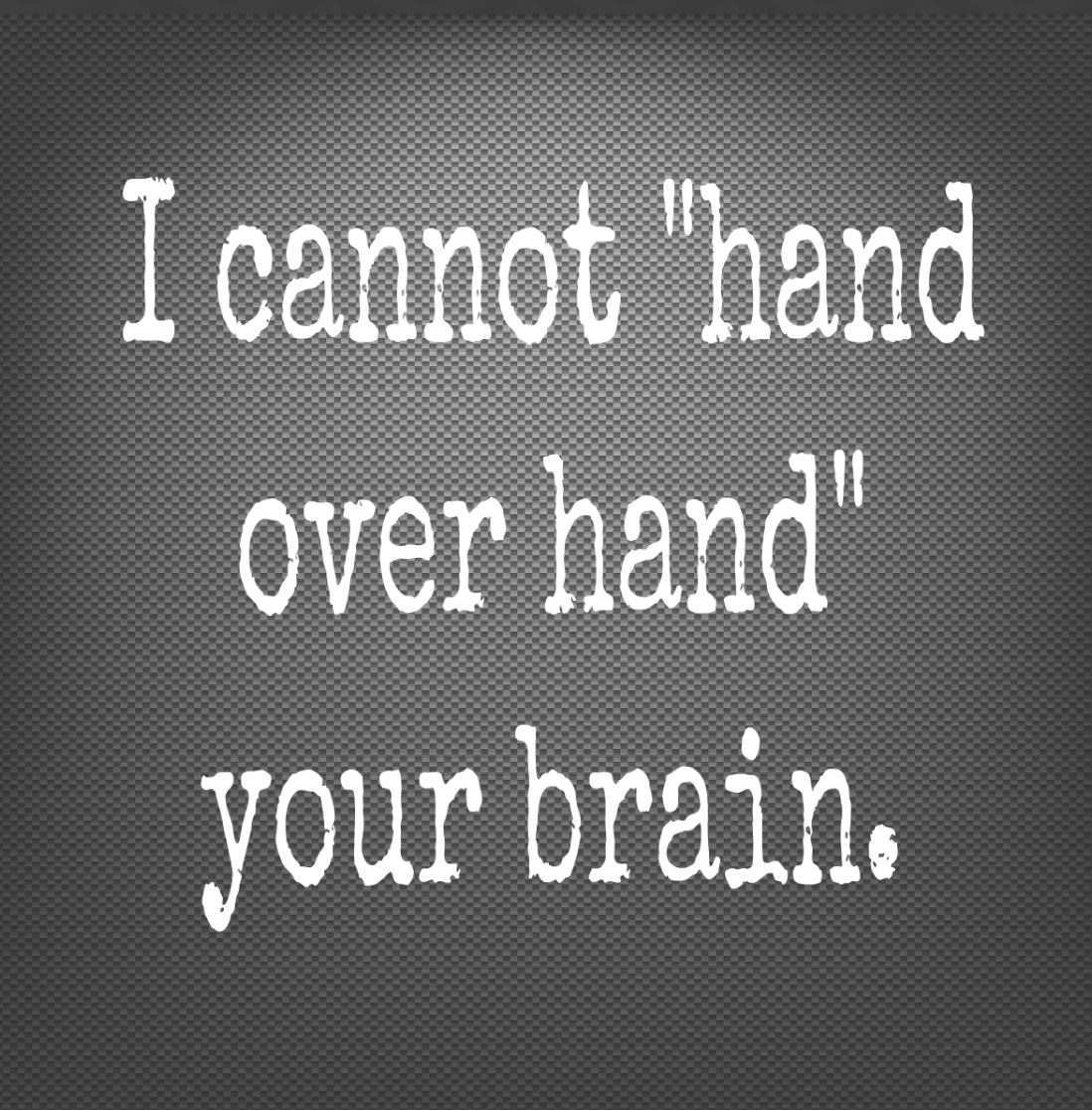If you read that on your child’s progress report, you might do a spit take, right? For one, Sally didn’t “solve” squat. Why is telling her the answer a measure of Sally’s progress? It’s nonsense! Unacceptable! The lowest of lows in pedagogy!
However, plenty of progress reports have gone out this year with some variation of the following:
“Aiden can request preferred activities from a choice of three objects with maximum physical (hand over hand) assistance.”
How in the world did Aiden request something if staff were the ones grabbing Aiden’s hand and pointing? I ask teams working with students why they are using hand over hand instead of any other number of solutions, and they tend to answer with a combination of the following:
“He has such involved motor issues, he can’t touch it unless we do hand over hand.”
“She won’t pay attention unless we do.”
“He won’t do it otherwise.”
You know what is interesting about those objections? They are about us, the adult, and not about our students. Our students with complex bodies need alternative ways of pointing, not hand over hand. Our students with poor attention need engaging and motivating environments, not hand over hand. If your students won’t do without hand over hand, you doing it for them is not a data point. Our students need to learn, and we simply cannot hand over hand their brains.

When we decide not to grab student’s hands, we are making a statement of trust and respect to our students. We model. We wait. We think about our materials, change them so they are accessible. We do any number of things because we are saying:
I will wait. I will not force you to perform at my speed.
I will watch. I will adjust and adapt to be a good teacher and communication partner for you.
I will discover with you. Everyone is engaged by something, and we can never know what you know unless you are engaged, first. We will find those things that work for you.
I will reflect. The data we take will be meaningful and help drive decision making, so you can communicate whatever you want to say, or show what you know.
What are you saying to your students today?